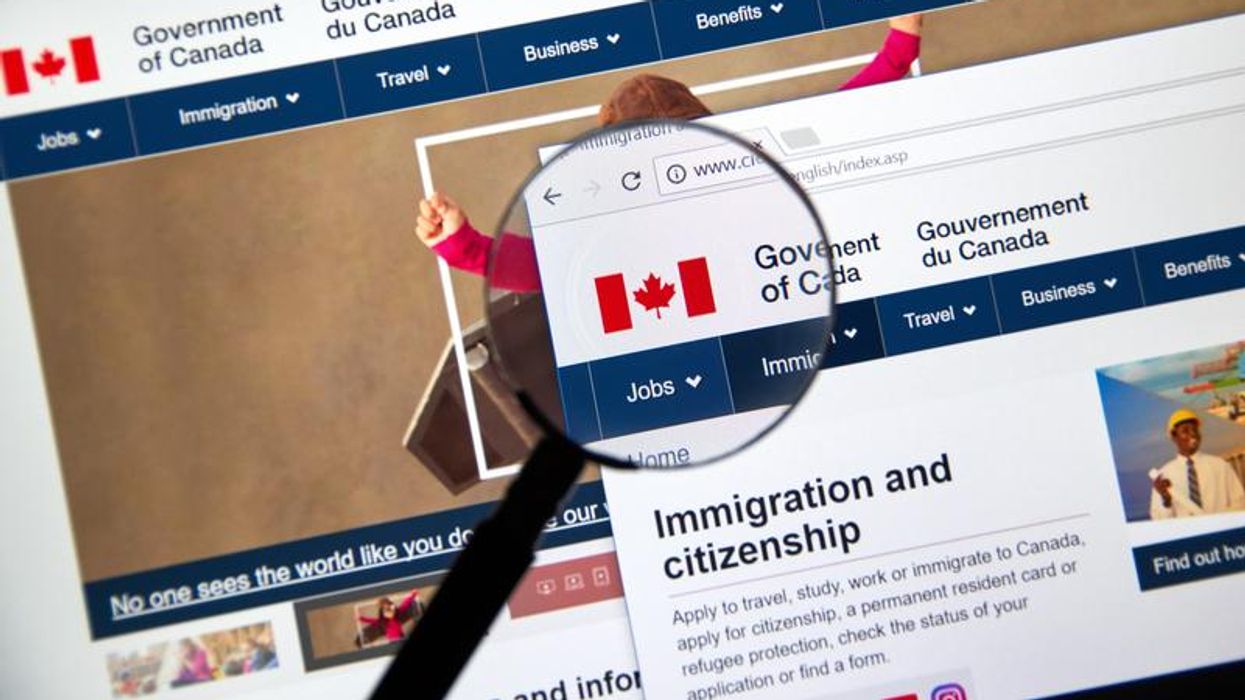Canadian Citizenship Can Actually Be Revoked & Here's A Look At The Reasons Why
Be careful, citizens!

The Government of Canada website.
Getting your Canadian citizenship is a matter of great pride and it's what many newcomers in Canada strive towards.
However, it's less common knowledge that Canadian citizenship can actually be revoked, although the occurrence is very rare.
As per Immigration, Refugees and Citizenship Canada (IRCC), the ability to revoke a person's Canadian citizenship has been part of legislation "since the Canadian Citizenship Act entered into force in 1947."
That's because it's "an important tool for maintaining the integrity of Canadian citizenship," according to the IRCC.
Why can your Canadian citizenship be revoked?
The Minister of Immigration, Refugees and Citizenship Canada has the authority to revoke Canadian citizenship if it was "obtained, retained, renounced or resumed" by any of the following three circumstances:
- False representation
- Fraud
- Knowingly concealing material circumstances
The federal court is usually the decision maker for all citizenship revocation cases, unless the person whose citizenship is under revocation requests the Minister of IRCC instead.
How does the citizenship revocation process work?
It all starts with the IRCC.
If they "suspect fraud, false representation or someone knowingly concealing material circumstances," their Compliance Inspections and Investigations Division (CIID) takes the lead and gathers "relevant information."
The Citizenship and Passport Cases Division (CPCD) then reviews the information and, if they feel like it should move forward, issues a non-statutory request for an information letter.
Once a person is issued this, they have 30 days to respond. The response has to be a written submission.
This will determine whether the revocation file will be closed or whether it will go further with the issuance of a notification letter.
The notification letter formally starts the revocation process, with it giving the person 60 days to provide information, documentation and submissions unless an extension has been granted.
What happens after citizenship is revoked?
While the revocation proceedings are taking place, a person is entitled to all the usual rights and privileges that come with a Canadian citizenship.
If they've been revoked due to false representation, fraud, or knowingly concealing material circumstances during the citizenship process, they become permanent residents.
However if they became a permanent resident using the above-mentioned points and then use this status to become citizens, they become foreign nationals as per IRPA.
If a person obtained a citizenship with respect to a more serious illegal activity such as espionage, violating human rights or criminality, the court may declare the person inadmissible to Canada.
It's also important to note anyone whose citizenship has been revoked is prohibited from being granted Canadian citizenship for 10 years from the date of revocation.
So, it's just best be honest in the overall application process.
It's also interesting to note that, in the past, a person's Canadian Citizenship could be revoked for national security reasons (like if someone was convicted of terrorism, treason or spying). However, this has since been repealed.
This article's cover image was used for illustrative purposes only.
- The Canadian Citizenship Test Is Actually Hard & Canadians Might ... ›
- Immigrating To Canada Can Be Expensive & Here Are The Fees ... ›
- A Canadian City Was Just Ranked Among The Best In The World ... ›
- Canada Morning Brief: 9 Things You Need To Know For Oct. 31 - Narcity ›
- Quebec's Premier Doesn't Want More Newcomers There & Yes, Language Is The Issue - Narcity ›
- 4 Big Benefits Of Having Permanent Resident Status In Canada & How You Can Get It - Narcity ›